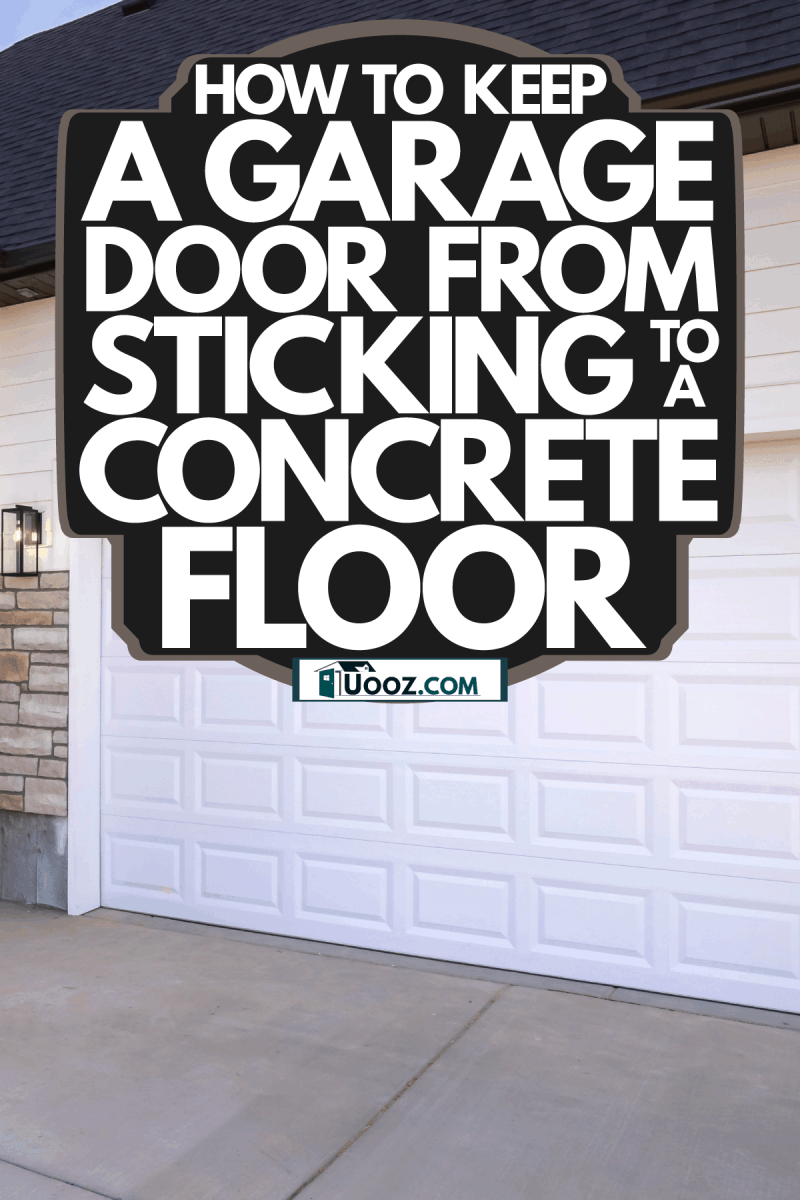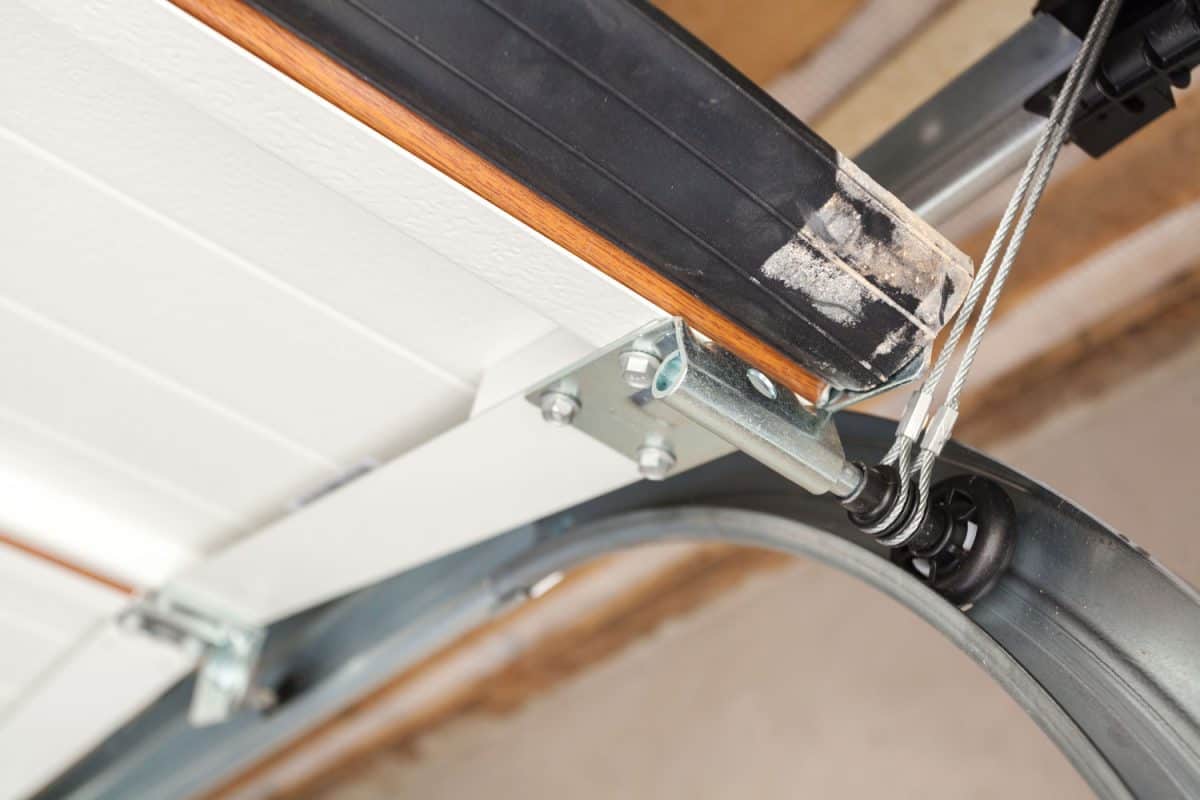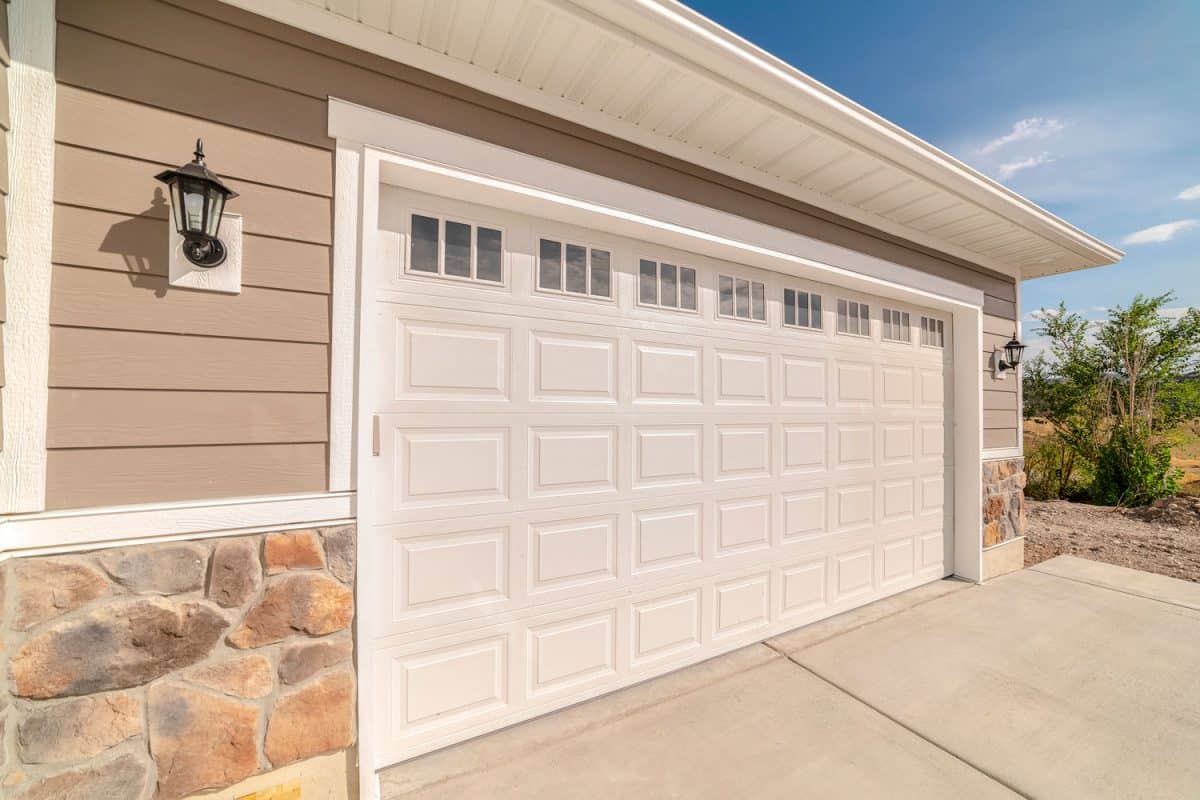Concrete floors and garage doors don't always go well together. Sometimes, you'll find that your garage door sticks to the concrete floor in your garage. If you've experienced this frustration, you might wonder how to keep your garage door from sticking to your concrete floor. We've done the research to bring you some suggestions for preventing your door from sticking.
Maintaining your garage door, preparing for extreme weather, and quickly taking care of any issues you find will help keep your garage door running smoothly and prevent sticking. Here are some ways you take care of your garage door:
- Preventative maintenance
- Lubrication
- Remove accumulated ice
- Apply salt
- Install a portable heater or fan
- Clean the garage floor
- Replace broken parts
If you still have some additional questions about preventing your garage door from sticking, don't worry. In this guide, we will discuss each of these methods and when they are best carried out. We invite you to keep reading so you can find the solution that best fits the reason your garage door keeps getting stuck.

Contents
Prevention
The best way to stop your door from sticking is to carry out prevention methods to reduce the likelihood of it happening in the first place. Take these preventative measures to keep your garage door in good condition.

Preventative Maintenance
Regularly inspect the garage door and its mechanism, so you know when they need to be replaced before they break. Preventative maintenance also includes regularly changing any batteries and testing all components.
Be sure to open your garage door automatically and manually when performing maintenance so you can be sure that either method will work if necessary.
Lubrication
Regularly apply lubricant to all tracks, chains, gears, and wheels to prevent them from sticking or rusting. Invest in high-quality lubricants made of silicone or lithium, as they are weather-resistant and protect the garage door parts from damage.
Prepare For Weather
Extreme cold weather or heat can wreak havoc on your garage door system. Take the time to maintain your garage when extreme weather is approaching and with the changing of the seasons.
Remove Accumulated Ice
Ice that accumulates on the bottom of your closed garage door will cause your door to stick to the floor. If this happens, use a heat source, an ice remover, salt, or lubricant.
Once the ice is melted, your garage door should function normally because it will have nothing to stick to.
Apply Salt
It is common practice to pour salt on your stairs, driveway, and sidewalks when a snow or ice storm is approaching.
Get into the habit of applying salt to the floor underneath your garage door to prevent ice from accumulating and preventing your door from opening.
Install A Portable Heater Or Fan
In cold weather, a portable heater will keep your garage warm enough to prevent the parts in your garage door system from warping or freezing.
Alternatively, a fan in the summer will protect your garage door from overheating or becoming damaged from the heat.
Resolving Issues
Sometimes your garage door will become stuck because something has happened to cause your garage door to stop working. In these cases, finding the issue and resolving it will return your garage door to working order.
Clean The Garage Floor
Fluid leaks from vehicles, spills, and debris can be sticky and stop your garage door from being able to open. If your garage door is stuck to the floor due to a mess, cleaning it up is an easy fix.
Remove all objects and debris in your garage door's path. Then, use a cleaner or hose to remove any sticky chemicals or fluids. Be sure also to clean the bottom of your garage door if it is sticky so it won't dirty the floor again.
Replace Broken Parts
Replace any broken parts on your garage door as quickly as possible. Damaged parts will prevent your garage door from working correctly, and one broken part may put a strain on other parts, causing them to need replacement as well.
Why Does My Garage Door Stick To The Concrete?

Expansion
Concrete expands in the heat, causing an ill fit between your concrete floor and your garage door. If there are any grooves or cracks in your concrete floor, your garage door could be getting stuck into the space when the concrete expands.
Sweating
Concrete also sweats in the heat. As you know, if you've ever been in a humid environment, the sweating can cause things to feel sticky, which may cause your garage door to get stuck.
If you don't use your garage door regularly and keep an eye on it, the unattended moisture can grow mold and mildew, further causing issues with your door.
Why Does My Garage Door Keep Getting Stuck?
Here are some that are most common reasons that your garage door keeps getting stuck:
Lubrication
The lubrication on your garage door may have worn away, causing friction in the garage door system. A smoother working door may be a matter of applying more lubricant.
Debris and Blockage
Many garage doors have sensors that indicate if something is blocking the garage door from closing in. This sensor prevents the garage door, and the items in the way, from getting damaged.
Piles of leaves, a thrown-down bicycle, or even a stray ball might be setting off the censor and not allowing the door to close all the way.
Spills And Messes
If you've ever walked on a kitchen floor after someone spills juice, you have experienced the stickiness that occurs after. Your floor in your garage is no different.
If you are working on a project and something spills onto the floor, it may become sticky, even if you've cleaned it up. The garage door could be sticking to the floor simply because the floor is sticky.
Why Does My Garage Door Get Stuck When It's Cold?
Cold weather can wreak havoc on your garage door and the parts that keep them working. Here are some reasons you might find your garage door getting stuck in the winter.
Broken Or Worn Down Parts
Cold weather can cause the garage door tracks to warp, making it difficult for your garage door to open and close properly. The cold weather can also stress the garage door system more, making it more likely for parts to break.
Frozen Lubrication
If you don't use weather-resistant lubricant, it can harden in the cold weather. When lubricant hardens, it is no longer effective in keeping the parts running smoothly.
What Is The Best Lubricant For Garage Doors?
Experts recommend lubricants that can stand up to continuous outdoor exposure.
Your garage door needs a lubricant that can help it function in these conditions, so if the lubricant can't manage them, it won't help the garage door work in them either. Silicone and lithium lubricants work best for garage doors.
Silicone Lubricants
Silicone lubricants are weather-resistant and can protect your garage door from extreme heat or cold. They are also water-resistant, which will prevent your door from rusting.
Take a look at this silicone lubricant on Amazon.
Lithium Lubricants
Lithium lubricants remain on the surface of the parts rather than getting soaked in, so they do a better job of lubricating the parts for longer.
They also work well for reducing the friction that can wear down the garage door parts and keep them from working correctly.
Click here to see this lithium lubricant on Amazon.
In Closing
Prevention is the best way to keep your garage door from sticking to your concrete floor. Ensuring that all the parts are working correctly and protected from extreme weather will significantly minimize any sticking incidents.
Be sure to clean up spills and debris quickly to prevent them from being the cause of your door sticking.
For more information on how to maintain your garage door, take a look at these articles below:
How To Close A Garage Door Manually


